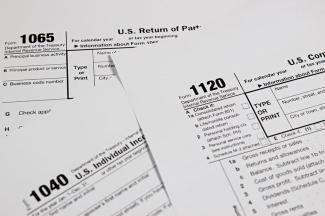As a small business owner, managing your finances can be challenging. Accounts payable and receivable are essential components of any small business's financial management system. Managing these accounts effectively can help you maintain strong relationships with suppliers, improve your cash flow, and reduce the risk of financial problems.
In this blog post, we will discuss the importance of accounts payable and receivable and why your small business needs them.
- Accounts Payable
Accounts payable refers to the money that your business owes to suppliers or vendors for goods and services. Managing accounts payable is essential for maintaining positive relationships with suppliers and ensuring that you have the resources you need to run your business.
Effective accounts payable management involves tracking invoices, managing payment terms, and paying suppliers on time. Late payments can damage your business's reputation and result in additional fees and interest charges.
- Accounts Receivable
Accounts receivable refers to the money that your business is owed by customers for goods and services that you have provided. Managing accounts receivable is essential for improving cash flow and ensuring that you have the resources you need to operate your business.
Effective accounts receivable management involves tracking invoices, managing payment terms, and following up on overdue payments. Late payments can negatively impact your cash flow and result in financial difficulties for your business.
- Improving Cash Flow
Managing accounts payable and receivable effectively can help improve your cash flow. This involves ensuring that you pay suppliers on time and that you collect payments from customers promptly. Improving your cash flow can help you manage your business's financial obligations and invest in growth opportunities.
- Reducing Financial Risks
Effective accounts payable and receivable management can also help reduce financial risks for your business. By monitoring your accounts payable and receivable, you can identify potential cash flow problems early and take corrective action to address them. This can help reduce the risk of financial problems, such as missed payments, late fees, and interest charges.
- Streamlining Financial Management
Managing accounts payable and receivable effectively can help streamline your financial management system. This involves integrating your accounts payable and receivable with other financial management tools, such as accounting software. This can help you save time and reduce the risk of errors in your financial management processes.
In conclusion, accounts payable and receivable are essential components of any small business's financial management system. Managing these accounts effectively can help you maintain positive relationships with suppliers, improve your cash flow, and reduce the risk of financial problems. So if you want to manage your business's finances effectively, invest in accounts payable and receivable management today.



